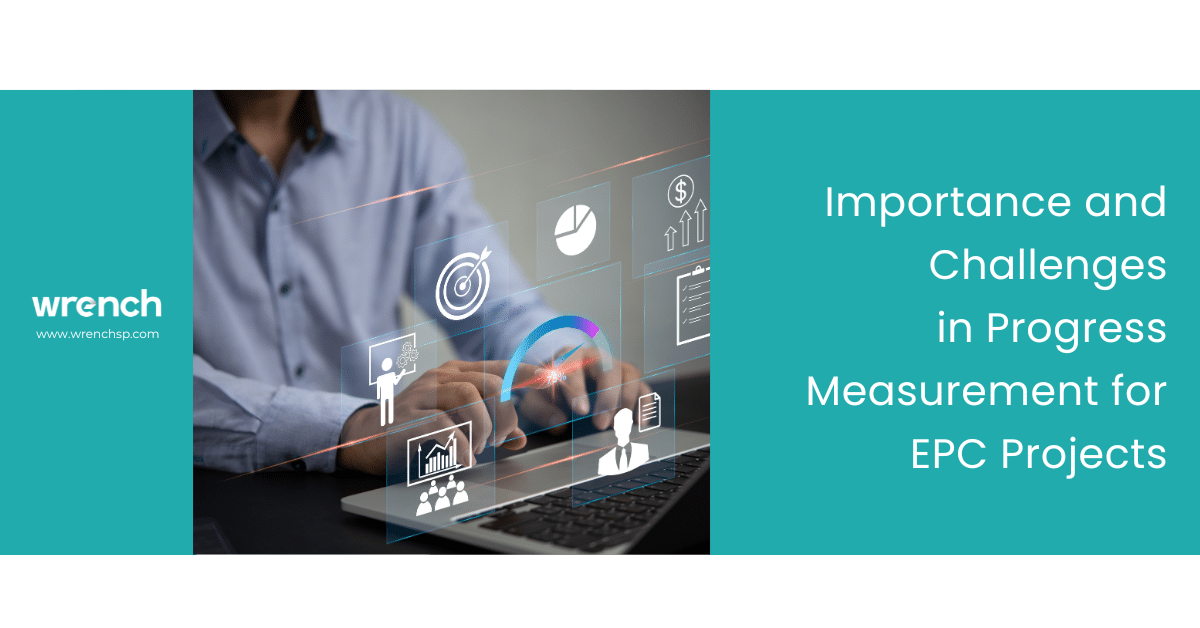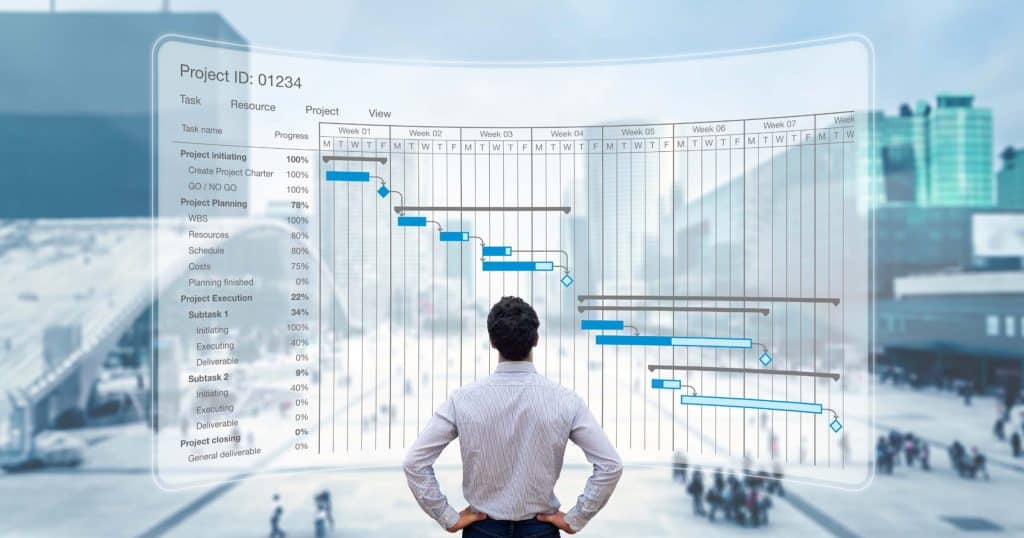- Blog progress Project Management Project Monitoring
- 03 Aug 2023
Importance and Challenges in Progress Measurement for EPC Projects

The performance of a project is defined by meeting the stated objectives and completing the project is approved cost and schedule. How is the performance monitored during the execution phase?
Project performance is measured during the project execution phase by monitoring the progress. How important it is to measure the progress and what are the challenges, especially for complex EPC projects where multiple stakeholders are involved in executing the project.
Importance of Progress Measurement in EPC Projects:
Step 1: Performance Evaluation
Progress measurement provides a quantitative assessment of a project’s performance. It helps stakeholders gauge whether the project is on track, meeting milestones, and achieving objectives within the scheduled time frame.
Step 2: Timely Completion
EPC projects often have strict deadlines, and progress measurement helps monitor the project’s advancement and identify any delays or bottlenecks. By tracking progress, project managers can take proactive measures to address issues promptly and ensure timely completion.
Step 3: Resource Allocation
Progress measurement facilitates effective utilization of the project resources. By understanding the progress at various stages of the project, project managers can allocate resources optimally, ensuring that sufficient manpower, equipment, and materials are available when and where it is needed and that the idling of resources is avoided to the extent possible.
Step 4: Risk Management
Accurate progress measurement aids in identifying and mitigating risks. By monitoring progress, project managers can detect potential deviations from the plan, assess their impact, and implement appropriate risk response strategies to minimize their effect on the project’s success.
Step 5: Communication and Stakeholder Management
Progress measurement provides a reliable basis for communication among project stakeholders. It allows project teams to share accurate and up-to-date information, foster transparency, manage expectations, and build trust with clients, contractors, and other involved parties.
Watch our latest webinar on this topic!
Now Let us Examine the Challenges Faced by Project Teams in Establishing a Robust Progress Measurement.
1. Complexity and Scope:
EPC projects often involve complex engineering designs, delivery of critical and long lead equipment, large-scale construction, and multiple work packages. Measuring progress accurately across various activities and disciplines can be challenging due to the sheer complexity and scope of the project.
2. Interdependencies:
EPC projects typically have numerous interdependent activities, making it difficult to isolate and measure progress for individual tasks. Delays or disruptions in one area can have a cascading effect on other activities, leading to inaccuracies in progress measurement.
3. Subjectivity and Variability:
Progress measurement often involves subjective judgment, especially when relying on visual inspections or manual reporting. Different stakeholders may have varying interpretations of progress, leading to discrepancies and potential conflicts.
4. Data Availability and Reliability:
Gathering reliable and up-to-date progress data can be challenging, particularly in projects with multiple subcontractors or when relying on manual data collection methods. Inaccurate or incomplete data can lead to biased progress reporting and misinformed decision-making.
5. Measurement Methods and Metrics:
Choosing appropriate measurement methods and metrics for progress evaluation is crucial. However, selecting the right indicators that capture the true progress of complex construction activities can be difficult, as different metrics may be required for different project phases.
6. Integration of Information Systems:
In large-scale EPC projects, integrating information systems from various stakeholders can be a significant challenge. Incompatibility or inconsistency between different systems used for progress measurement can hinder accurate reporting and data sharing.
Addressing these challenges requires the implementation of robust project management practices, standardized progress measurement methodologies, and the utilization of technology solutions for data collection, analysis, and reporting. By overcoming these obstacles, project teams can achieve more accurate and reliable progress measurements, leading to improved project performance and successful project delivery.
Real-time progress measurements of EPC projects leverage technology to enhance data collection, analysis, and visualization. By adopting these advancements, project managers can gain deeper insights, improve decision-making, and proactively address challenges, ultimately leading to more efficient and successful project execution.
Sajith is a Graduate Engineer and certified Project Management Professional from PMI who carries 30 years of industry experience. He has deep domain expertise in EPC who worked with major EPC Contractors and owner organisations in the Oil & Gas sector, including Petrofac, KNPC, KIPIC, Chevron, Almeer, BPL Ltd etc.. Sajith has executed EPC projects valuing around 500 M USD, and has been associated with a 16 billion USD new refinery project in Kuwait.
Related Posts

What is an EDMS?
EDMS has become popular in the EPC world in the last decade, especially after the pandemic. What is EDMS? At its core, EDMS is an electronic document management system or a software that organises and…
- 20 Mar 2025

The Role of AI in Project Monitoring
As AI continues to make inroads into every industry in the world and the buzz around it continues to grow, we’re seeing EPC organisations leave behind their historical hesitation about emerging technologies; in fact we’re…
- 13 Mar 2025
Archives
- March 2025
- February 2025
- January 2025
- November 2024
- October 2024
- September 2024
- August 2024
- July 2024
- June 2024
- May 2024
- April 2024
- March 2024
- January 2024
- December 2023
- November 2023
- September 2023
- August 2023
- July 2023
- June 2023
- May 2023
- April 2023
- March 2023
- February 2023
- January 2023
- December 2022
- November 2022
- September 2022
- June 2022
- May 2022
- April 2022
- March 2022
- January 2022
- November 2021
- October 2021
- July 2021
- June 2021
- May 2021
- March 2021
- February 2021
- January 2021
- December 2020
- November 2020
- September 2020
- August 2020
- June 2020
- April 2020
- March 2020
- February 2020
- January 2020
- November 2019
- October 2019
- September 2019
- August 2019
- April 2019
- March 2019
- December 2018
- October 2018
- September 2018
- August 2018
- July 2018
- June 2018
- May 2018
- April 2018
- January 2018
- November 2017
- October 2017
- September 2017
- May 2017
- April 2017
- March 2017
- February 2017
- January 2017

